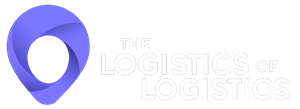Using Resilience to Get Out of Your Own Way with Ann Holm
Ann Holm and Joe Lynch discuss using resilience to get out of your own way. In times of stress, people need to become even more aware of their mental fitness. In this interview, Ann describes some of the challenges people face when under stress along with some strategies to become more resilient.
About Ann Holm
Ann C. Holm, MS, PCC, is a Professional Certified Coach specializing in executive, career, and sales coaching. In addition to being a certified Master practitioner of the Myers-Briggs Type Indicator, she offers the Type Coach online assessment, with a focus on personality as it relates to the process of generating leads, closing, and maintaining sales accounts. She also has 25 years of experience in applied brain science, using her hands-on experiences to help her coaching clients understand how to stay focused, be engaged, and energized given the demands of the 21st-century workplace. Ann has both a BA and an MS from the University of Michigan which focuses on psychology, brain science, and language.
About Ann Holm’s Coaching Practice
Ann helps individuals position themselves for success by increasing their self-awareness, which is a must-have skill in the 21st century. Through coaching and proven assessment tools, Ann helps people become aware of their personality, emotional intelligence, and how they manage their brain energy. She also helps her client to better understand their value proposition or personal brand. Areas of expertise include: personal self-awareness, sales coaching for logistics professionals, emotional intelligence, communication and influence, team building, MBTI Master Practitioner, extensive experience with the MBTI Step III, 360 Reach/Personal Branding, and applied brain science.
Key Takeaways: Using Resilience to Get Out of Your Own Way
Resilience is the ability to recover from or adjust easily to misfortune or change. Below are some of the highlights from the interview with Ann.
- COVID has increased the stress levels for logistics and supply chain people and when people are stressed they may fall into predictable self-sabotaging behaviors.
- In the last podcast interview with Ann, the topic of grit was discussed. In this podcast, Joe and Ann discuss resilience or mental fitness which is the way we navigate the waters with ease and flow.
- When we are looking at mental fitness, we are looking at expanding our options and proceeding with a calm laser focus. But that’s easier said than done. In fact, we often get in our own way and even get tricked into thinking we are actually doing the most optimal thing when we are not.
- In a previous podcast, we talked about saboteurs. We are bringing that back because right now, so many people’s saboteurs are out in full force because of the uncertainty we are experiencing. High stress greatly increases the chances that we will get in our own way.
- The Positive Intelligence framework identifies the following 9 saboteurs.
- There are three saboteurs that try to create independence:
- The controller: individuals who must have control of everything.
- The stickler: somebody who is trying to make sure that every detail is covered.
- The avoider: an individual who doesn’t want to be pinned down.
- Next is the group that is trying to gain acceptance:
- The hyper-achiever: one who has no idea of what is good or excellent because they need to be perfect.
- The pleaser: an individual who tries to gain acceptance by pleasing everybody.
- The victim: people who feel like their situation is uniquely flawed and they can’t do anything about it.
- The last group is the people who are trying to gain security:
- The restless: people who are always wanting to move on to the next thing.
- The hyper-vigilant: always scanning the horizon for the next thing.
- The hyper-rational: they have a very difficult time with the relationship side of things.
- There are three saboteurs that try to create independence:
Strategies for building resilience:
- First of all, you need insight. You can’t maximize your potential without accurate self-awareness. Most people think they are self-aware, but most people are not nearly as self-aware as they believe they are.
- A Harvard Business Review publication in 2018 revealed that 95% of us think we are self-aware but only 10-15% actually are. Self-awareness peels back in layers, almost like the layers of an onion. So, go to the Positive Intelligence website and take the free saboteur assessment. This will jumpstart your thinking on self-awareness
- If you’d like to go further, visit Ann’s website www.annholm.net and schedule a free consultation to really dig into your report and get any questions answered.
- Then if you want to start building your mental muscle to make changes that will last, sign up for Ann’s 6-week mental fitness Bootcamp that provides the structure, motivation, and ways to track your mental fitness progress.
Learn More: Using Resilience to Get Out of Your Own
Free Assessment – How You Self Sabotage
Schedule Your Free Coaching Session to Review Your Self Sabotage Asesssment
Related Topics:
Emotional Intelligence in Sales with Ann Holm
Understanding Your Sales Personality with Ryan Schreiber and Ann Holm

